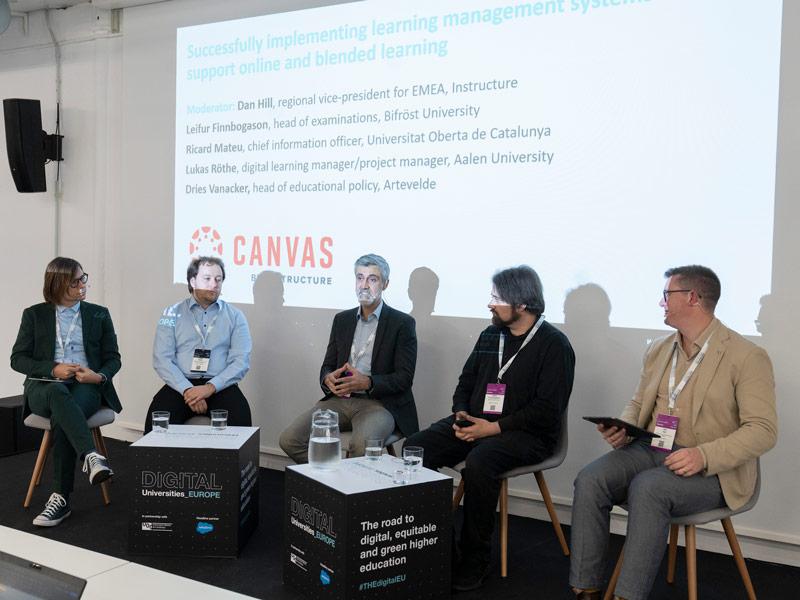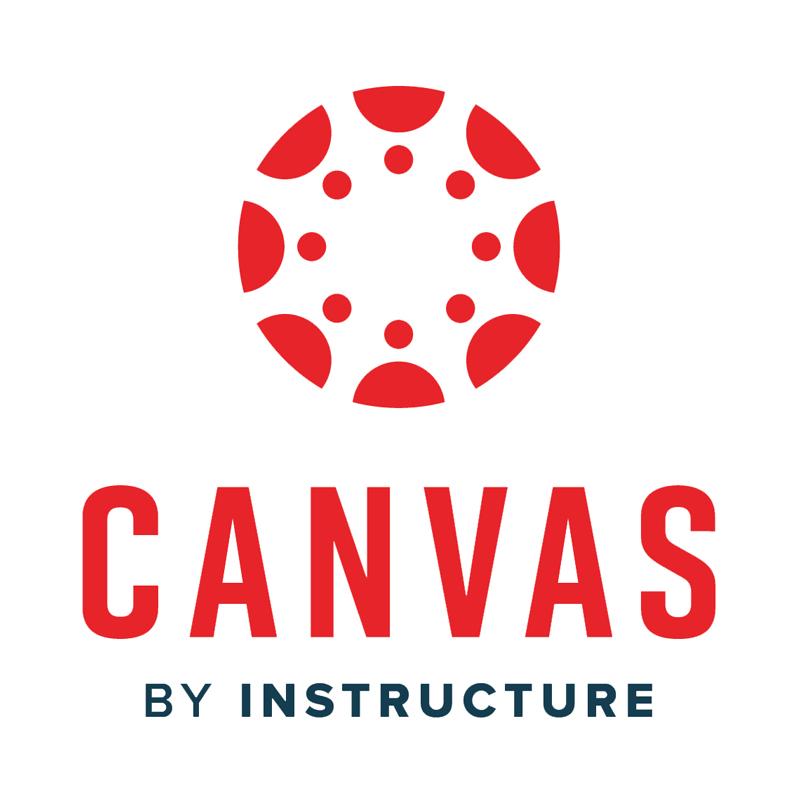
Implementing learning management systems to support online and blended learning

Learning management systems (LMS) provide innovative solutions for online and blended learning. Offering a wide range of tools and features to enhance engagement, streamline course management and support personalised learning, the benefits of LMSs are recognised around the world, with educational institutions implementing them to improve teaching and learning outcomes.
During a discussion at the 2023 THE Digital Universities Europe event, held in partnership with Canvas by Instructure, the panel spoke about how LMSs will shape the future of education and learning.
Ricard Mateu, chief information officer and deputy general manager for digital transformation at the Open University of Catalonia – which is a fully online institution – said the LMS has been a core component for the institution since its inception in 1993. Its original LMS was tailored to the needs of the Open University, but it inevitably became a legacy system, making it difficult to maintain and costly to evolve. “In 2010, we started an ongoing process to search for alternatives in the market. In 2017, we decided there were alternatives, and we led an RFP [request for proposal], where we included our students for user experience testing,” Mateu said.
Including students in the development process was essential and, after Canvas was awarded the contract, Mateu said the implementation project took about three years. “The first phase included around 800 students, and we did a lot of surveys to understand where the pain points were from their perspective. The second phase included around 8,000 students and the large-scale rollout was completed in September, and we now reach 80,000 students on Canvas,” he said.
Leifur Finnbogason, head of examinations at Bifröst University, expanded on the importance of student participation in implementing LMSs. Finnbogason was a student representative at the university during the three-year implementation phase, which began with efforts to understand what students needed and how to expand as a digital university. “That’s where I came into the process as a student and offered insights on what students were looking for,” he said.
Daniel Hill, managing director for Europe, the Middle East and Africa at Instructure, says a commitment to usability and ensuring the process is right for end users is an important part of the process. Lukas Röthe, digital learning manager at Aalen University, explained that his institution took a bottom-up approach to the implementation process, with one staff member working on the implementation and students from different faculties testing the LMS.
Today, years after the rollout, Aalen University still takes the same approach to testing. “Now, we have myself as an employee, but we still have around 10 students working on our team to support and find new tools during the implementation.” This approach equips students with real-world skills and experiences that they can bring to the labour market.
Dries Vanacker, head of educational policy at Artevelde University of Applied Sciences says the institution has a high-quality assurance system in place. Each year, the university evaluates how the teaching is going and how well the different platforms are working. “This analysis from the end user, both students and lecturers, is the basis to analyse our previous learning management system,” he said. But it all comes back to learners being at the heart of the process. “Involving your end user, your student, in any change process is essential.”
The panel:
- Daniel Hill, managing director for EMEA, Instructure
- Leifur Finnbogason, head of examinations, Bifröst University
- Ricard Mateu, chief information officer, the Open University of Catalonia
- Lukas Röthe, digital learning manager, Aalen University
- Dries Vanacker, head of educational policy, Artevelde University of Applied Sciences

